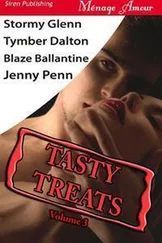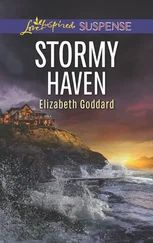Beside the well was a 1927 touring car with a lot of seismographic equipment, but it was turned off and the geophone needles were dead on their pegs. A man sat in the car with a radio on, and a man in chaps sat beside him. The man in the chaps took off his broad hat and wiped his head with a bandana. The salt water roared.
“Jesus Christ, they’re going down like ninepins.” The men bent forward to the crackling radio. “U.S. Steel and all of them.”
They said hello to the seismograph man and he said, Good day, girls. Mayme asked what was it that they were listening to on the radio.
“The stock market has crashed,” said the seismograph man. He turned up the volume. The announcer said that Montgomery Ward was falling from 83 to 50 and Radio was hurtling down headlong from 68 to 44. “Are any of you heavily invested in stocks or bonds?”
Jeanine said no, they were not.
“Good. If you do, put your money in oil.”
“All right,” said Jeanine, brightly.
Mayme said, “He’s kidding you, wise up.” They talked in this way because they were very young and had seen various movie stars in films, the starlets who were cynical and smart and tossed their heads at everything. They said wise up, and tell it to your old man, and made the fashionable gestures of shrugging and lifting their chins. The girls stood by the car with black hands, holding their coal, listening.
IT WAS IN June of 1931 that the Lou Della Crim came in outside of Longview, near the Louisiana border. The Lou Della roared up in a gusher that took the drilling pipe out with it and threw the twenty-foot, two-hundred-pound joints of pipe into the air like jackstraws. The blowout of oil hurled a three-cone roller drill bit the size of an alligator a full two hundred yards. Men ran for their lives. It cost a crew ten days’ labor to shut it down. They had hit the biggest oil pool in the history of the world and it was sweet, high-gravity oil so pure you could almost pour it straight into your gas tank, it was the color of honey. The wildcatter who drilled the discovery well reached the oil-bearing strata with an ancient cable-tool rig and a decrepit wooden derrick and secondhand equipment. The driller and his crew were so broke they were throwing old tires into the steam engine for fuel.
“There’s going to be some wild times out there,” her father said. “They hit it at only fifteen hundred feet, Liz. It’s coming in at nearly twenty-two thousand barrels a day.”
Jeanine came to stand by him at the table and peered carefully at the exclamatory headlines of the Longview Daily News. She was shelling peas. Strands of desert wind sang at the top of the stovepipe and her mother read a Hardy Boys book, The Great Airport Mystery, aloud to Bea, on the other side of the table.
“Those boys are going to need some pipe hauled,” Jeanine said. She tossed a handful of fresh peas into her mouth. Her low, boyish voice made her father laugh so hard he dropped the paper.
“Listen to the girl,” he said. “Ain’t she a pistol.”
AND SO THEY left the Permian Basin with great hopes, the summer when Jeanine had just turned thirteen and Mayme was fifteen and Bea was six. Their father bought a Reo Speed Wagon flatbed, and on this they loaded all their possessions and left the desert for East Texas. Jack and Elizabeth and Bea rode in the cab and Mayme and Jeanine rode on the flatbed with their trunks and boxes. They spent six days on the road and had eleven flats. Her father poured Karo syrup into the front tires and it made the inner tubes hold out longer. The terrible drought of the early 1930s had reduced Central and North Texas to a country of hardpan and drift and abandoned farms. They saw other people headed east along with them, loaded with mattresses and chickens and children and washboards tied to the tops of Tin Lizzies, all of them journeying toward the East Texas strike where there was work to be had.
The country near the Louisiana border was heavy and green, pine trees sagged under drapes of Virginia creeper vine that had turned the color of rust in the fall air. They came to the town of Arp. Under the black-on-white arp sign a redheaded woman with a flock of guinea hens pecking at her feet sold boiled peanuts from a two-gallon pail. The peanuts tumbled in the smoking water. They were the color of snuff and looked like eyes gone bad. Jeanine and Mayme tried to make Bea eat them to see if it would kill her or not. Bea was, at that time, an obedient and amiable child.
Arp was where the railhead lay, a town of stacked casing pipe and barrels of drilling fluid, piles of cable and whipstocks and food supplies. The trains off-loaded equipment and canned goods and then took on the high-grade East Texas crude into tanker cars. The field had developed so fast there weren’t even enough pipelines. Trucks churned their wheels in the scarlet mud, hauling material to the drill sites throughout Rusk and Gregg counties. Locomotives came through at the rate of thirty a day, fifteen going north and fifteen south. There was almost no housing to be had. A city of tents had grown up around nearly every town in the area, and people lived among the forests of pine like an army of cheerful refugees. Boxcars and tankers arrived behind their engines, screaming out of the pine forests, down the unsteady roadbeds. Boxcars that said INTERNATIONAL AND GREAT NORTHERN, TEXAS AND PACIFIC, GULF COAST AND RIO GRANDE. Trains became the sound of Jeanine’s memories of East Texas, the steam engines with their hoarse and violent and distant singing.
Her mother said they would not live in a tent even though Jeanine and her older sister were about to say they wanted to live in a tent more than anything. They imagined looking at the crashing loud oil strike world from under the ballooning fabric, it would be just their own family together under canvas. But their mother said if there was no house for them, she was leaving. She would take the girls and go home, back to the Tolliver farm, and he could make his own way as best he could. Elizabeth Tolliver Stoddard made a dramatic gesture toward throwing the skillet in a cardboard box and folding up Mayme’s overalls. Jack Stoddard reached out to touch Jeanine’s hair and said, No, Liz, I couldn’t make it without all of you. I’ll find us something. Don’t go, Liz.
They were lucky to get part of a house in on the north side of Longview. It was a farmhouse whose farm had been devoured by the oil fields and the tents and the little board-and-batten rent houses. It had been added onto many times; the old farmhouse was a confusing jumble of rooms and closed-in porches and windowless additions. Over everything the thin hundred-foot East Texas pines bent in the wind and sang.
They had three rooms in the back, looking out onto the well and the hard-packed dirt of the yard. There were at least three other families in the house but it seemed like more than that because there were so many children running rampant in the day and the night. Some people from Illinois on the second floor screamed at one another about whether or not a one-dollar bill the wife had received for three hens and all their chicks was counterfeit. Another family consisted of a set of parents and two ratlike boys with wide bare feet who attacked each other with chinaberry shooters and screamed and pretended to die. Jeanine helped to unpack; the girls would sleep in one room and their parents in another and they would eat and talk and cook and listen to the radio in the third. They stuck the stovepipe out a window. The sisters called it the Crazy House.
After school they ran down to the railroad tracks and placed things on the rails for trains to run over; sometimes a penny, although pennies were precious. The trains did peculiar things to metal; nails flattened and shone, hairpins turned to steel ribbons. Men in tattered clothes jumped out of the freight cars and ran for the trackside weeds, there were so many of them that the railroad police just stood back and watched them and let them go. They were men who had seen the economic structure of the nation suddenly disintegrate without warning, and they felt they had become citizens of some strange country without knowing it. It was a nation they no longer knew. A wasteland without law or order, and they had taken to traveling through this wasteland almost like tourists.
Читать дальше












